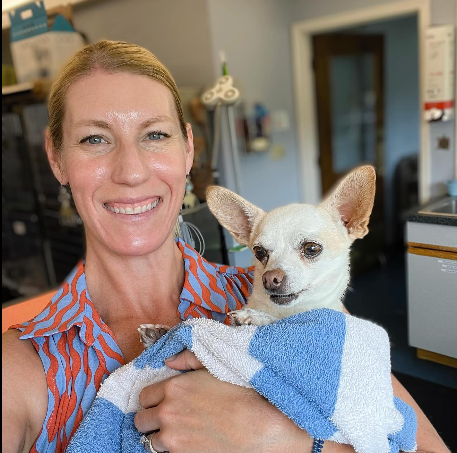It’s not unusual for dog owners to notice changes in their pet’s behavior after getting vaccinated. Vaccines help prevent serious and even fatal diseases, but they may also cause mild side effects. Understanding common post-vaccination behavioral shifts can help you support your dog through this process.
Stress and Discomfort
Vaccines contain weakened or dead virus particles that activate the immune system without actually causing illness. Still, this triggers inflammation as the body works to build immunity. As with illness, inflammation may make your dog feel temporarily unwell or in pain.
Dogs may pace, whimper, seek isolation, or act more clingy while their immune system responds. Loss of appetite and lethargy are also common as the body focuses energy inward to mount an immune response. These effects generally pass within 48 hours but may persist for up to a week.
As pack animals, dogs are also highly sensitive to emotional states around them. If you seem stressed while handling vaccine visits, your pup may mirror that tension. Staying calm and offering comforting touches can prevent your dog from feeding off negative energy.
Immune Response
Vaccines contain adjuvants – compounds that stimulate a stronger immune reaction. This allows faster, longer-lasting immunity but also amplifies inflammatory effects. As this immune response dies down over 2-3 days, temporary behavioral changes usually resolve as well.
Puppies in particular may sleep more, move less, or just act “under the weather” as their immune systems kick into high gear in response to a vaccine. This protects them in the future but causes some intense body aches and fatigue at the time.
Allergic Reactions
While rare, some dogs may also have allergic reactions to vaccine components. Facial swelling, hives, vomiting, and diarrhea are possible. Moodiness, changes in vocalization, or unusual body postures may signal discomfort.
If you notice these acute vaccine reactions, seek veterinary care immediately. Antihistamines and steroids treat symptoms while preventing progression to life-threatening anaphylaxis.
Phobias
Traumatic experiences – like those associated with vet visits for vaccines – can sometimes trigger lasting behavior issues. Dogs may come to fear the car, vet’s office, or being handled in certain ways after painful shots or restraint.
Watch for shaking, refusing to walk, destroyed objects, and house soiling after future vet visits. If your dog shows these signs of stress, vaccination-related anxiety may be developing into a phobia requiring behavioral intervention.
Site Pain
Injection site pain is common after any vaccination. Tenderness usually resolves within 48 hours but may cause alterations like lowered activity levels, sensitivity being touched, appetite changes, or vocal signs of pain.
Dogs may snap or nip if the injection area is palpated. Give them space for a day or two until discomfort at the location dissipates. Use baby gates, closed doors, or leashes as needed to prevent awkward interactions with other pets or children.
Facial Expressions
Dogs communicate primarily through body language – and this can look dramatically different when in pain. Ears back, furrowed brows, tightened mouths, averted eyes, and a lowered head or tail all signal discomfort.
Pay close attention to these nonverbal pain cues after vaccination. Even subtle facial tics may mean your pup isn’t feeling well. Respect their signals by allowing rest and isolation until these vaccine-related changes resolve.
Separation Anxiety
The trauma of being left at an unfamiliar vet’s office can induce separation anxiety in some dogs. Because this often develops over time, you may not notice it until months after vaccination.
Post-vaccine clinginess that gives way to destruction, house soiling, or loud vocalizing whenever you leave points to separation distress. Retraining using positive reinforcement and structured alone time can help to overcome this anxiety.
Hiding and Withdrawal
Don’t be surprised if your formerly social butterfly of a dog starts acting shy and skittish after vaccination. Discomfort coupled with amplification of scary stimuli through inflammation may temporarily cause them to seek more time alone in safe places like under beds or behind furniture.
Attempting to coax them out when they feel so vulnerable may erode confidence and trust. Instead, allow them to set the pace for reintegration into household activity over a day or two.
Nighttime Activity
Inflammation’s effects on sleep often cause dogs to be more restless and active at night post-vaccination. They may pace, wander from room to room, vocalize, or even have bathroom accidents overnight due to vaccine-induced discomfort.
Making sure your pup gets ample daytime activity can help prevent these sleep disruptions. Maintain their normal diet, walking, and play schedule – then provide comfy, peaceful areas for uninterrupted sleep if possible. Melatonin supplements also ease restless nights.
Oral Behaviors
Teeth chattering, lip licking, eating inappropriate items, mouthing, or even self-biting may point to your dog’s unease. Like nail biting in humans, repetitive oral behaviors often increase during times of stress, fear, or pain as the familiar action soothes.
While usually harmless, constant nibbling or chewing merits investigation into your dog’s emotional state. If it starts suddenly after vaccination, their mouthiness likely signifies discomfort that will resolve as vaccine effects fade.
Tippy Toes
Lameness is another common vaccine reaction. Just as our arms get sore after the flu shot, muscle stiffness and pain may cause dogs to tiptoe or limp following injections. This often manifests in the leg nearest the vaccine site.
Carry small dogs up and down stairs and discourage jumping during this temporary tenderness. It generally clears up within 48 hours but ask your vet about pain relief if they persist walking gingerly or seem to strain rising from rest.
Guarding Behavior
Dogs in pain tend to get snappier. Those already prone to resource guarding may become extra protective of food, toys, beds, or other valued items after vaccination discomfort sets in.
Watch children and multi-pet households closely, intervening to prevent any vaccine-related nip incidents. Keeping treats and toys put away reduces potential squabbles. And make sure all pets have ample personal space as they heal.
Self-Directed Biting
Just as mosquito bites itch, vaccine injection sites may also be irritating. Dogs may snap, lick, or nibble persistently at the location in an effort to soothe.
Place an E-collar cone on them to allow the area time to heal if self-trauma occurs. You can then apply soothing compresses or calamine creams to ease subsequent itching. If reactions seem severe, seek veterinary attention to rule out secondary skin infection.
Nightmares
Dogs dream just like humans, playing out instinctive scenarios like chasing squirrels. But vaccines may also induce fever dreams just like illness due to their similar inflammatory effects.
Whimpering, paw twitching, or even growling during sleep after vaccination may signal disturbing nightmares. Gently waking and comforting dogs helps them resettle into more peaceful slumber. Staying close by also reassures them.
Sensitivity
Inflammation makes nerve endings extra sensitive, lowering dogs’ tolerance for loud noises, bright lights, strong scents, or being jostled. What was previously non-bothersome may suddenly incite a flinch, fearful retreat, or defensive reaction post-vaccination while dogs feel extra vulnerable physically and emotionally.
Avoid big parties, household renovations, and rearranging furniture in the days following vaccine visits when possible. Maintain calm routines with minimal stimulation until your dog adjusts.
Aggression
Most negative behavioral changes post-vaccination stem from pain-induced grouchiness versus true aggression. But extreme stress, inflammation effects on brain chemicals, and phobias can also unleash atypical growls or bites.
Immediately intervene by separating dogs from negative situations if alarming aggression arises after vaccination. Muzzle them if total isolation is impossible. Then identify and address the root trigger, whether that’s pain, fear, guarding behavior, or cognitive dysfunction.
Conclusion
From lethargy and soreness to sensitivities and clinginess, Vaccines commonly affect dog behavior – usually mildly and temporarily but sometimes seriously. Being aware of common vaccine-related behavioral shifts allows you to respond appropriately.
Most resolve within a few days as inflammation fades. But others like phobias, nightmares, and separation anxiety may require veterinary, training, or behavioral intervention if they persist beyond expected healing times. Recognizing these issues early and not writing them off as “just post-vaccine changes” helps dogs get the assistance they need faster.
So monitor your best friend closely after vaccination appointments and tend gently to any needs that arise. With compassion and patience, both of you will soon be back to 100%! Reach out promptly for any worrying or prolonged alterations in temperament though.

Dr. Allison Kramer is a seasoned veterinarian with a Master’s degree in Animal Behavior and over 10 years of experience specializing in canine health and behavior. Her expertise in positive reinforcement training and holistic care enhances the well-being of dogs and fosters strong pet-owner relationships. For expert advice and valuable insights, follow Dr. Kramer on Instagram @dr.allisonkramer.





